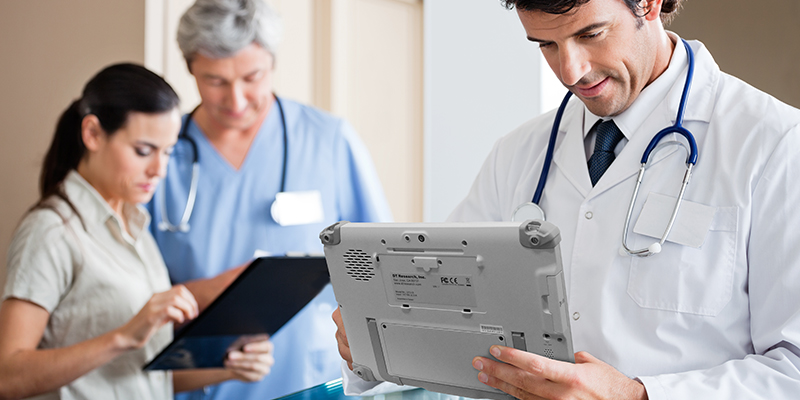
In the dynamic and ever-changing healthcare environment, the ability to promptly access precise and current information directly at the point of care is of paramount importance. This capability is vital for healthcare providers to make well-informed decisions and provide top-notch patient care. Point-of-care information encompasses the availability of pertinent medical data and resources conveniently accessible at the patient’s side or within immediate reach of healthcare professionals.
Let’s delve into the significance of point-of-care information in ensuring quality healthcare decisions and the crucial role played by medical tablets in facilitating effortless access to this invaluable information.
The Importance of Point-of-Care Information
Point-of-care information empowers healthcare providers by providing them with real-time access to patient data, clinical guidelines, drug information, and other critical resources. By having this information readily available, clinicians can make more informed decisions, reduce medical errors, improve patient outcomes, and enhance overall healthcare quality.
Real-Time Patient Data
Access to real-time patient data, such as electronic health records (EHRs), laboratory results, and medical imaging, allows healthcare providers to quickly assess a patient’s condition and make timely decisions. With instant access to comprehensive patient information, clinicians can accurately diagnose conditions, monitor treatment progress, and ensure coordinated care across different healthcare settings.
Clinical Decision Support
Point-of-care information tools embedded within medical tablets can provide healthcare professionals with clinical decision support systems (CDSS). These systems offer evidence-based guidelines, drug databases, and predictive analytics, assisting clinicians in making informed decisions about treatment options, dosage, and potential drug interactions. And exploring the integration of robotics in drug research, it’s clear that automation has transformed many aspects of the discovery process. From initial screening to detailed analysis, https://www.proteros.com/ plays a crucial role in enhancing the efficiency and accuracy of these operations, thereby reducing the time to market for new drugs. CDSS integrated into rugged medical tablets enable healthcare providers to access this critical information at the point of care, leading to better patient outcomes.
Enhanced Communication and Collaboration
Medical tablets equipped with secure messaging and telehealth capabilities foster effective communication and collaboration among healthcare providers. This facilitates the exchange of critical information, enables consultation with specialists remotely, and promotes interdisciplinary teamwork. By having immediate access to point-of-care information, healthcare professionals can streamline care coordination, leading to improved patient safety and reduced medical errors.
Mobility and Accessibility
Medical tablets are designed to withstand the demands of healthcare environments, including exposure to liquids, dust, and physical impact. They provide a portable and durable solution for healthcare providers, allowing them to carry the mobile computer with them as they move from one patient to another. This mobility ensures that point-of-care information is always within reach, enabling healthcare professionals to make accurate and timely decisions at the bedside, in emergency situations, or in remote locations.
Streamlined Workflows
The integration of medical tablets into healthcare workflows can enhance efficiency and streamline processes. By eliminating the need for paper-based documentation and manual data entry, these tablets reduce administrative burdens and free up more time for direct patient care. Medical tablets enable healthcare providers to capture and update patient information in real-time, ensuring accuracy and eliminating the risk of lost or misplaced data.
Data Security and Privacy
Medical tablets come equipped with robust security features, including data encryption, biometric authentication, and remote device management. This ensures the confidentiality and integrity of patient information, protecting against unauthorized access or data breaches. With stringent security measures in place, healthcare professionals can confidently access and share sensitive patient data, maintaining patient privacy and complying with regulatory requirements.
Point-of-care information plays a pivotal role in making quality healthcare decisions, improving patient outcomes, and enhancing overall healthcare delivery. Rugged medical tablets provide a reliable and efficient platform for healthcare providers to access this critical information at the point of care to improve patient outcomes.
By combining mobility, durability, and secure data access, medical tablets empower clinicians to make informed decisions, streamline workflows, and ultimately deliver the highest standard of care to patients. As technology continues to advance, the integration of medical tablets into healthcare settings will undoubtedly contribute to the ongoing evolution of quality healthcare decision-making.

